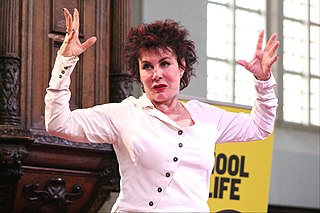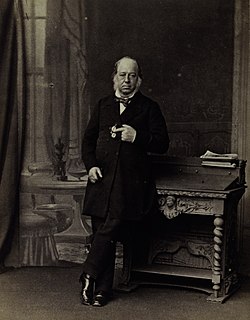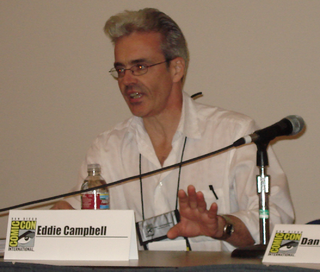A Quote by Peter Molyneux
I remembered a long time ago, Kit Williams hid a golden hare somewhere in Britain and wrote a book which was layered with clues about where the it was. This really fired my imagination, I read the book and it was way too cryptic for me to understand, but it seemed to fascinated people - it even got on the news.
Related Quotes
I loved reading historical novels when I was young, but I definitely don't think I wrote one. When I read my book through, when it was completely done and in printed galleys, I was surprised by how uninterested in the passage of time and history the book seemed to be. Even though you can feel it all there, that's just not what it's focused on.
I doubt if I shall ever have time to read the book again -- there are too many new ones coming out all the time which I want to read. Yet an old book has something for me which no new book can ever have -- for at every reading the memories and atmosphere of other readings come back and I am reading old years as well as an old book.
A travel book is a book that puts you in the shoes of the traveler, and it's usually a book about having a very bad time, having a miserable time, even better. You don't want to read a book about someone having a great time in the South of France, eating and drinking and falling in love. What you want to read is a book about a guy going through the jungle, going through the arctic snow, having a terrible time trying to cross the Sahara, and solving problems as they go.
I didn't really like reading much before I did 'The Golden Compass'. But then my teacher told me to read it. And I thought, 'Oh God, I'm going to have to read a whole book by myself!' It's not that I couldn't read, it's just that I didn't really like books very much. But the book that she lent me I really enjoyed.
The fact that for a long time Cubism has not been understood and that even today there are people who cannot see anything in it means nothing. I do not read English, an English book is a blank book to me. This does not mean that the English language does not exist. Why should I blame anyone but myself if I cannot understand what I know nothing about?" -Pablo Picasso.
I heard about the book and I said, 'Oh my god, I've got to read this book,' and I didn't know that a white woman wrote it. Nobody said that to me, they just said, 'The Help - Oh my god, you've got to read it.' Everyone failed to mention it was a white woman, I think, because nobody really wants to talk about race.
Heidegger wrote a book called Was Ist Das Ding - What Is a Thing? which was kind of interesting and influential to me, as a matter of fact. It's a small paperback, which I read. It's about the nature of thingness; what is it? It's a very penetrating analysis of that, and I think a rather influential book. I know other artists who have read it and come up with it.
But if I did read, say, [Maurice] Merleau-Ponty, for instance, it always seemed to me that the parts that I understood in what he was talking about - and I read him because - well, he wrote a book, well, the Phenomenology of Perception [New York: Humanities Press, 1962]. And it seemed to me that perception had a lot do with how we take in art.
You will want a book which contains not man's thoughts, but God's - not a book that may amuse you, but a book that can save you - not even a book that can instruct you, but a book on which you can venture an eternity - not only a book which can give relief to your spirit, but redemption to your soul - a book which contains salvation, and conveys it to you, one which shall at once be the Saviour's book and the sinner's.







































